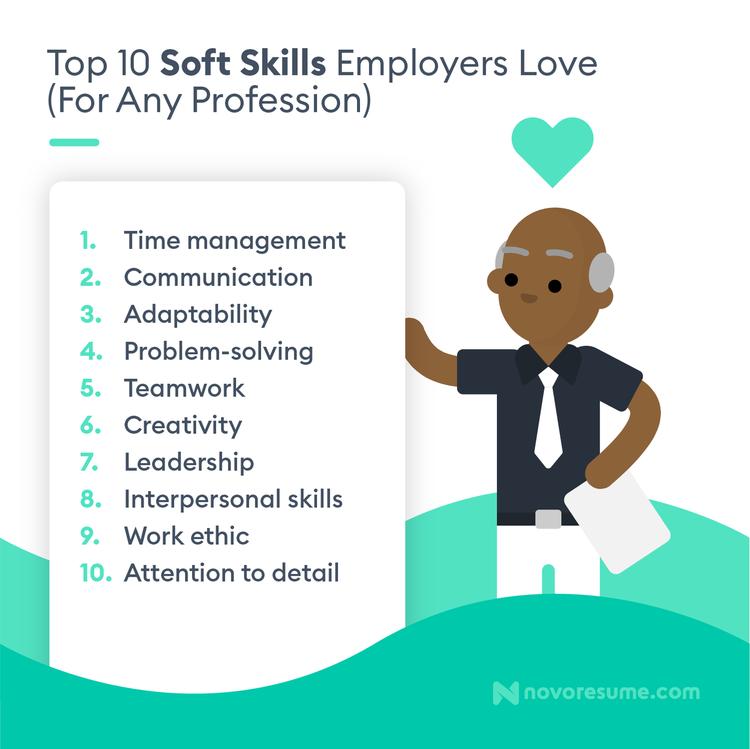There are many types of soft skills, and all of these skills are important in the work environment. We should ask a question: “What are soft skills?” To answer this question, we need to know more about interpersonal skills.
In this article, we reveal the list of soft skills and their application in modern work. Keep reading to find out more.
What are soft skills and why are they important?
Soft skills are usually interpersonal skills, listening skills, communication skills, empathy, time management, and similar skills. These relate to how you work and how you approach the work challenges.
Someone can be successful in technical skills, but if they are not able to offer the soft skills, they will not be successful in the workplace. Every employer needs employees who will communicate with each other and solve problems together. To achieve this, the employees need to have soft skills and this is an important thing in the process of work.
Look for the soft skills in you that can help you achieve success in the workplace.
Each employee should approach the client with a smile and courtesy, and this is the key to the success of each company. Having soft skills can make a significant difference in every business.
Examples of Soft Skills

There are soft skills examples that show how a person interacts with their colleagues and clients. These skills include:
1. Adaptability: If you are flexible and willing to learn, you have signs of adaptability in your approach to work. This skill applies to handling different workflows and trying new things. People who can adapt to change are usually more motivated, organized, and more courageous than others.
2. Creative thinking:is the ability to approach a problem from various perspectives. This soft skill is very important in organizations and businesses that require problem-solving. Creative thinking might bring a resolution to the problem between the employees or it can bring a new result from the existing data set.
3. Teamwork: Employees who have strong teamwork skills are very popular among business owners. These employees show good communication skills, are collaborative, and demonstrate leadership. Being a team player is an important skill in almost any industry, including food service, retail, and information technology.
4. Communication: Almost every business requires communication soft skills from the employees. These skills include writing, in-person communication, online communication, and communication on the phone. All of these aspects are equally important and can serve as building blocks for the success of the company.
5. Time management: People who manage their time correctly are more productive, more efficient, and they can meet deadlines in a better way. They can focus on time-sensitive tasks and this is a crucial thing in meeting deadlines. Time management is important for the entire team, and their approach to work can be based on the most important aspects when this skill is included in the process.
6. Conflict resolution: Employees who are good at conflict resolution are usually excellent mediators, and they can manage difficult personalities while using empathy. Conflicts can occur between co-workers or between service providers and customers. Those who can bring conflict resolution skills to the table are usually highly popular among employers.
When you apply for a job position, you may wonder which soft skills to put on your resume. Start with those that you possess and explain them further in your resume. You will make a good impression and have a better chance of getting a job this way.
When you know the main types of soft skills, you can learn more about them and apply them in your regular working environment. The more you develop your soft skills, the more success you will have at the company. It is never too late to learn new skills and apply them in everyday life.









